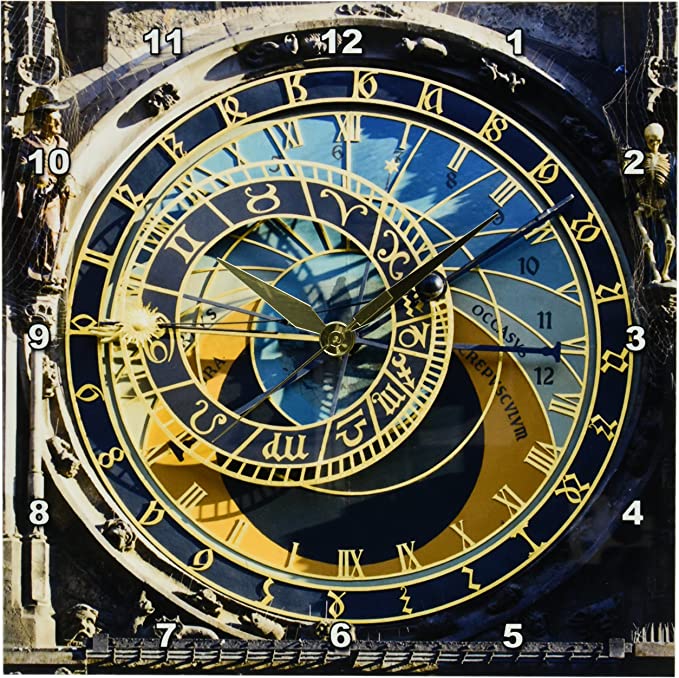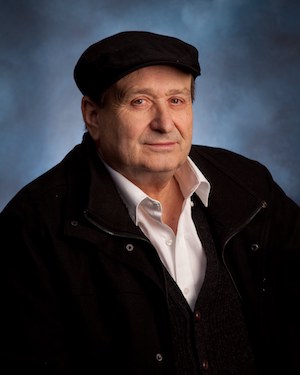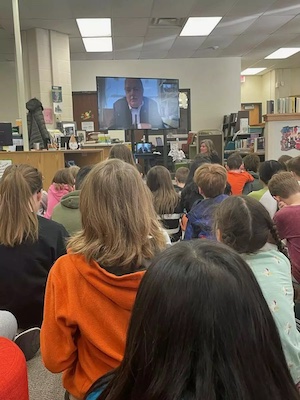
I think a lot about the passage of time, which I suppose is characteristic of a student of history, particularly an aging one. There’s a meme going around that reads something like, “when I think of 30-year-old SF shows / what’s really a 30-year-old SF show”, and has pictures of the cast of the original Battlestar Galactica and the cast of Deep Space Nine. I have to keep reminding myself (or have my daughter remind me) that the 1980s were forty years ago, not twenty, like my internal clock wants me to believe.
Did you know music from the ’80s is now considered “oldies”, and music from 20 years ago, whatever the hell it is, is considered “classic rock?” I didn’t.
I was born in the waning years of the Eisenhower Administration; that is to say, the very late 1950s. That makes me a late Boomer. (“OK, Boomer.” Shut up.) I remember, very vaguely, the JFK funeral. I remember Vietnam, at least from TV. I watched the moon landing in the summer of 1969, live, on a black and white set. There was a time that I wasn’t so old, but I’m older now and realize it’s been a while since I was part of the young people in the room.
When writing historical fiction, it’s key to understand the period, and get the framing right. Part of this is to understand what the earliest experience might be for a character who is 25, 40, 60 years old at the time of the book. For example, in Elements of Mind, which is set around 1860:
- A 25-year-old would never have known a world without railroads; Napoleon would be a historical figure from the previous generation; would be accustomed to rapid changes in technology and society.
- A 40-year-old would have been born before the Industrial Revolution but would have experienced the changes imposed on society by it. His/her parents would have experienced the Age of Napoleon. The world would be different than the previous generation, but they would have adapted.
- A 60-year-old was born at the turn of the 19th century, when there was horse-drawn everything, when most of the world had not yet been completely explored. Napoleon was either the great nemesis of his/her youth, or the great lost hero. The modern world would be jarring, something best left to younger generations.
Consider the same age groups today.
- A 25-year-old has never known a world without the Internet, cell phones, cable television. The first president they might have known was Ronald Reagan. Cursive writing? Standard transmissions? Forget it.
- A 40-year-old got a cell phone as a teenager or young adult. The first introduction to the Internet was by slow modem. Cable television was most likely part of the household. Their first President? Probably Bill Clinton. Cursive writing was an annoyance that was long since abandoned except for signatures. Driving a car with a clutch was either something to be avoided or embraced.
- A 60-year-old got the first cell phone with the first good job, and it was expensive and bulky. The Internet was initially available only if that job was a high-tech one, and then it might have only been email. Home net access didn’t come until much further along. TV when young was black-and-white, large, on three networks, and any kid was the remote. Everyone could write cursive. Most learned on a clutch car, and now it was to be avoided or embraced (some things span generational boundaries).
And so on.
This may all seem obvious, but maybe that’s only for writers. Truly, it surprises me how many people seem adrift from the passage of time, unaware of how things change until (as Al Stewart famously says, “you reach out your hand but you’re all alone.”
I see this happening in my Masonic lodges, especially for members that don’t relate to younger ones. The most successful “old men” in my lodge made friends with newer, younger Brothers and thus, as their contemporaries drifted (or passed) away, they still knew people. And now here I am, often the only person who remembers someone or something from twenty-five, thirty, thirty-five years ago, trying to do the same thing.
Time passes at the rate of one second per second. When I used to put my (then young) daughter to bed, I would tell her, “this is the only <fill in date> you will ever have; I hope it was good for you. We like to say that we will look back at this or that and laugh . . . but sometimes we never look back. As Satchel Paige used to say, don’t do that – “something might be gaining on you.”
About Walter Hunt
Share This Post
3 Comments
Comments are closed.


One of the discussions that brought this home to me in a nearly painful manner was a slushed 1632 story in which the author took a character (Farrah Nesbit) from the grid and included several paragraphs about how in school she had been made to suffer for her “weird foreign name,” the writer being too young to have known Charlie’s Angels and the actress Farrah Fawcett. In 2000, the given name would not have been considered peculiar or foreign.
I agree with everything you said, but I think you might have reversed your presidents. A 25 year-old today was born around 1997 and Bill Clinton was president then. Jimmy Carter was president in 1980.
Melody, you’re quite right. First president for 25-year-olds would probably be GW Bush.